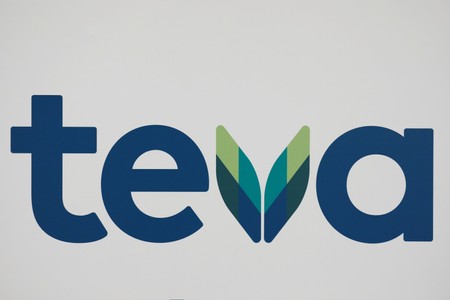By Michael Erman and Nate Raymond
NEW YORK/BOSTON (Reuters) – Teva Pharmaceutical Industries Ltd’s proposed $23 billion drug giveaway to settle thousands of U.S. opioid lawsuits will likely cost the company a fraction of that figure due to how it has valued those medicines, according to a Reuters review of pricing data and industry analysts.
When Teva announced the value of the donated medicine – a generic version of opioid addiction treatment Suboxone – it based the figure on the drug’s list price, which does not account for significant discounts routinely provided by the drugmaker.
If based on the estimated cost to manufacture the drugs, the value could be as low as $1.5 billion, drug pricing consultants and industry analysts say. A Teva spokeswoman declined to comment on the cost analysis for generic Suboxone, a combination of buprenorphine and the opioid reversal agent naloxone.
In interviews with Reuters, lawyers representing local governments in the opioid litigation said the figure proposed by Teva inflates the real value of the drugs. They said the proposal will not be enough to address a nationwide addiction crisis that has claimed some 400,000 lives over the last two decades. The deal is “overvalued to make the settlement look better,” said Hunter Shkolnik, a lawyer on the plaintiffs executive committee that is managing more than 2,300 federal lawsuits consolidated in the U.S. District Court in Cleveland. “I don’t believe a no-cash payment from Teva, one of the largest generic manufacturers in the world, is appropriate,” he told Reuters. Israel-based Teva is looking to reach a nationwide settlement over its role in selling opioid painkillers, together with drugmaker Johnson & Johnson and the three largest U.S. drug distributors, AmerisourceBergen Corp, Cardinal Health Inc and McKesson Corp.
Negotiations between these companies and four state attorneys general leading the talks on behalf of their counterparts have focused on a total settlement value worth about $48 billion, including cash and free medicines.
On Monday, Teva signaled progress in talks over its contribution aimed at directly helping addiction victims of this major public health crisis. Attorneys general of the four states had agreed on a proposed settlement under which Teva would provide $23 billion worth of generic Suboxone and pay $250 million in cash over 10 years, the company said.
Teva said the donated drugs should meet most of the currently estimated U.S. patient need for the next decade.
The free drugs in lieu of cash would also help Teva avoid adding new debt to its balance sheet at a time that it is struggling to return to growth.
Teva shares rose 8% after it disclosed details of the proposed settlement. The company denies any wrongdoing in its sale of opioids, saying it did not actively promote its generic versions of the painkillers with doctors. Many of the current lawsuits accuse drugmakers of aggressively marketing the medicines in a way that downplayed their potential addiction risk.
INFLATED LIST PRICES
Scrutiny of Teva’s proposed settlement followed the company’s disclosure on Monday that it would use a benchmark called “wholesale acquisition cost” (WAC) to determine the value of the drugs provided for free. WAC – frequently referred to as the list price of a drug – does not include discounts or rebates and is often several times higher than what patients actually pay at the pharmacy. “WAC cannot be trusted as a pricing benchmark for generic drugs,” said Eric Pachman, founder of pharmaceutical consultancy 3 Axis Advisors. According to 3 Axis data, Teva’s list price for its generic Suboxone ranged from 3 to 5 times what retail pharmacies paid, on average, for it in August. And that price represents a premium over the company’s manufacturing costs. Jefferies analyst David Steinberg estimated that the cost of the donated drugs would be around $1.5 billion, while Bernstein analyst Ronny Gal suggested they could cost about $2.3 billion to produce. JP Morgan analyst Chris Schott’s estimate of manufacturing costs for generic Suboxone was higher, ranging from $5.75 billion to $9.2 billion, still a long way from the company’s projected $23 billion value. Avoiding significant cash costs is important for Teva, which is working to pay down nearly $27 billion in net debt, a legacy of its ill-timed 2016 purchase of Allergan Plc’s generic drugs business Actavis generics. The profit margin for generic drugs has fallen sharply since. Ori Hershkovitz, an independent consultant to pharmaceutical companies, previously held a mostly short position in Teva while at Nexthera Capital, a New York-based healthcare-focused investment firm.
Teva’s proposed settlement, if accepted, should help allay investor concerns over the opioid cases, Hershkovitz said. But he still doubts the company will be able to correct its most fundamental problems. “The high debt load and the situation in the generics market will make it impossible to repay this debt,” he predicted. “They might have won the opioid battle but they are going to lose the overall war.”
(Reporting by Michael Erman and Nate Raymond; Additional reporting by Tom Hals in Wilmington, Delaware, Tova Cohen and Steve Scheer in Tel Aviv; Editing by Michele Gershberg and Bill Berkrot)


